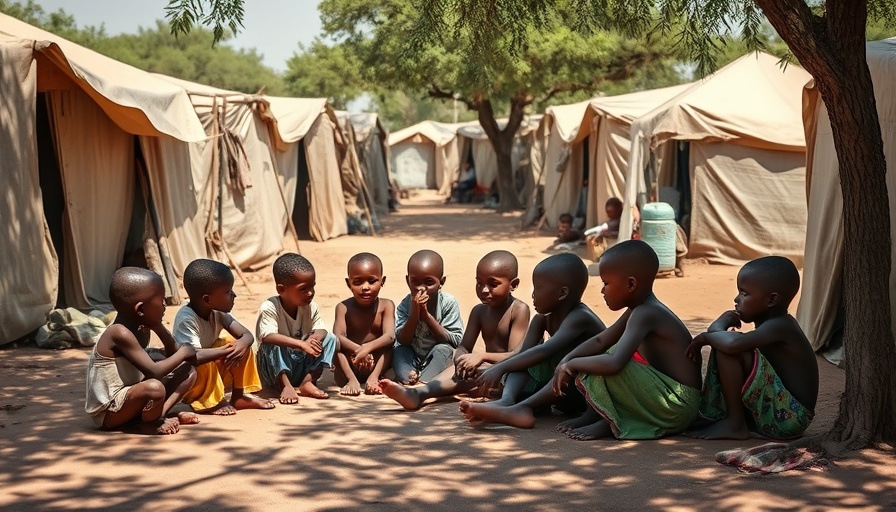
Escalating Crisis in North Darfur: A Call for International Attention
The humanitarian crisis in North Darfur's capital, El Fasher, has reached alarming levels, with increasing reports of violence and acute shortages of critical resources like food and water. Civilians find themselves ensnared in a tragic conflict that has unfolded since May last year, primarily driven by the actions of the paramilitary Rapid Support Forces (RSF) and the Sudanese Armed Forces (SAF). As El Fasher succumbs to intense shelling, echoes of cries for help resonate louder than ever, urging the international community to take notice.
A Desperate Situation: Humanitarian Needs Multiply
Reports indicate a grim humanitarian state classified as IPC Phase 5, characterized by conditions of famine. The Zamzam displacement camp epitomizes this dire reality, leaving thousands of vulnerable children at risk of life-threatening malnutrition. Activists and local leaders plead for a cessation of hostilities and the lifting of blockades that hinder essential aid flows. The blockade imposed by the RSF exacerbates the suffering, yet, against the backdrop of despair, the Sudan Liberation Forces (SLF) have proposed safe passages for civilians, advocating for urgent humanitarian assistance.
The Role of the International Community: UN's Potential Intervention
The United Nations has signaled an increased willingness to engage in crisis management, with officials recently discussing responsive measures in Port Sudan. Minister Khaled Aleisir has called upon the UN to mobilize its resources and intervene effectively, using its aircraft and vehicles to deliver much-needed aid. This coordinated approach is crucial as political negotiations unfold amidst military engagements, necessitating a humanitarian perspective to guide actions.
Politically Charged Environment: Allegations and Accusations
The complexities of the North Darfur crisis are compounded by accusations of foreign support for the RSF, highlighting the intertwining of local and geopolitical dynamics. Amidst this unrest, the Sudanese government has attempted to showcase its commitment to aiding affected populations by distributing food and medical supplies from the air. However, these conflicting narratives add layers of challenge to resolving the situation.
Conclusion: A Collective Responsibility
As the situation in North Darfur deteriorates further, it is imperative for the international community, policymakers, and humanitarian organizations to collaborate in addressing these burgeoning needs. Understanding the root causes of this crisis, and responding promptly, could prevent further loss of life and create pathways towards stabilization. Leaders and investors with interests in Africa must pivot their attention to these pressing issues, considering the broader implications of conflict on the continent's socio-economic landscape.
 Add Row
Add Row  Add
Add 


Write A Comment